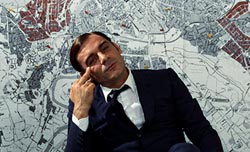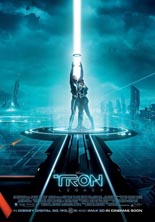
 Tron — the 1982 tale of a computer programmer (Jeff Bridges, True Grit) zapped into a world of anthropomorphized data programs — is not a classic. The writing is basic; the direction, adequate; the plot, silly; the acting, coasting on charm alone, which, in the case of Bridges, is fairly substantial.
Tron — the 1982 tale of a computer programmer (Jeff Bridges, True Grit) zapped into a world of anthropomorphized data programs — is not a classic. The writing is basic; the direction, adequate; the plot, silly; the acting, coasting on charm alone, which, in the case of Bridges, is fairly substantial.
Yet little of that matters, because its unabashed special-effects joy leaps from the screen. Like Star Wars, 2001 and King Kong, Tron — with its revolutionary CGI — was an FX leap that held you to your seat with a huge grin on your face. This was benchmark, even if the rest of the film was flat as warm cola.
There was little chance that, three decades later, Tron: Legacy (plot: Bridges’ son explores the computer world to find his long-missing father) would even touch Tron’s pop-cultural importance. And despite light-years of difference between the two — more distinctive direction by Joseph Kosinski (Oblivion), impressive visuals, slightly more interesting characters — Legacy fails its birthright.
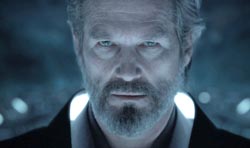 Tron was a lighthearted adventure; Legacy succumbs to the Dark Knight-ization of modern reboots. Gee-whiz fun is replaced with a soul-destroying pixelscape of bleakness, the effects stunning yet in service to nothing. The original character of Tron (Bruce Boxleitner, TV’s Babylon 5) is barely even present, shoehorned in at the end to play deus ex machina and allow the scriptwriters a way out.
Tron was a lighthearted adventure; Legacy succumbs to the Dark Knight-ization of modern reboots. Gee-whiz fun is replaced with a soul-destroying pixelscape of bleakness, the effects stunning yet in service to nothing. The original character of Tron (Bruce Boxleitner, TV’s Babylon 5) is barely even present, shoehorned in at the end to play deus ex machina and allow the scriptwriters a way out.
Weirdly enough, the real pleasures in this special-effects showcase are the actors. Nominal star Garrett Hedlund (Eragon) brings limited range to a limited role. However, Bridges’ now-iconic/laconic Zen-master shtick is a desperately welcome pleasure. Olivia Wilde (Cowboys & Aliens) uses her exotically outsized features to pleasing effect as Bridges’ companion, and Michael Sheen (Underworld) goes full “campy Joel Grey in Cabaret” with his too-brief, entertainingly broad portrayal of a conniving program with wires in every port.
It’s not enough, not when there are tens of effects for every line of dialogue. Tron, for all its weaknesses, had a soul within its electrical universe; Legacy can’t find it.
Speaking of soullessness: Bridges also portrays Legacy’s villain, Clu, a program that looks as Bridges once did, his now-aged visage replaced with a youthful one. When the face isn’t moving, it’s an impressive feat of effects work. But when it talks? Unnervingly off. It may seem odd to complain about computerized artificiality in Tron, but Bridges’ uncanny valley visit will haunt my nightmares. —Corey Redekop


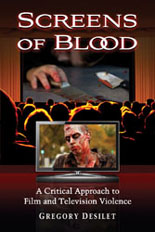
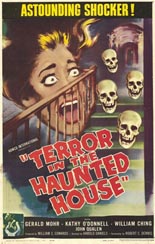
 Ironically, the element that attracts most viewers to
Ironically, the element that attracts most viewers to 
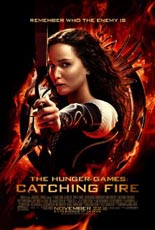
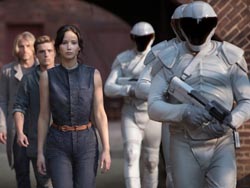
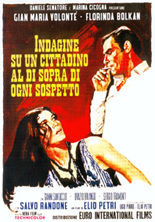
 “How are you going to kill me this time?” she asks teasingly, as she takes her lover into her arms.
“How are you going to kill me this time?” she asks teasingly, as she takes her lover into her arms. 